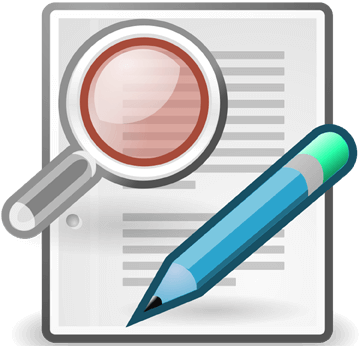 In addition to the technical points raised by Laurie Price in her Oct. 19th post and Richard adding to the comments on that post, editor Laurie Skemp is weighing in with this guest post:
In addition to the technical points raised by Laurie Price in her Oct. 19th post and Richard adding to the comments on that post, editor Laurie Skemp is weighing in with this guest post:
I would like to mention some creative considerations that will provide insight to the editor while he or she is working on your manuscript.
As a freelance editor who works primarily with self-publishing authors, I have found that a brief synopsis about the project provides insight on the plot, the characters and the author’s writing style. It is especially helpful when doing the sample edit because it presents pertinent information upfront that can ease the way for both parties:
1. What is the TONE of your novel? What feelings are you trying to convey to the reader? Is it a novel of suspense revolving around tension and surprises? Is the main character morose because negative or corrupt things are happening/have happened to him or her, and therefore the tone is pessimistic? Is the novel a humorous adaptation of a long-standing friendship, and therefore the tone is lighthearted and upbeat? Is it a somber story about a future time in an alternative universe, and therefore the tone is dark and dismal?
2. Most editors focus on the “FOUR C’s” when editing: continuity, conciseness, clarity and consistency. But in order to do this, the editor needs basic information about style. Does the hero or heroine have detailed internal conversations when trying to analyze/address a situation? Does “Grandma” like to ramble on and therefore needs ten lines of conversation to make her point? Is your style such that you prefer longer descriptive narratives with less dialogue, or vice versa? Does this book leave some unanswered questions and some lighter character development because it is part of a series?
3. Are you looking for a detailed edit involving the four C’s listed above, or are you looking for a limited correction of punctuation and spelling (more of a proofread)? What are your expectations of the editor? How receptive will you be to the analysis the editor will provide?
Authors and editors maintain a dialogue when working on a project, but answering questions similar to these open the gateway to the project. Both the author and editor will begin the project with more information, and this allows for a more efficient collaboration.
Laurie Skemp is a certified freelance copy editor, specializing in grammar, punctuation and usage, and dangling participles and split infinitives are two of her pet peeves. She edits any genre, and past projects include YA, Science Fiction, Futuristic and Romance. Laurie is a member of the Freelance Editors Association, and her website, www.authorsea.com, contains comments from published authors and book covers of published projects. Email her at laurie.authorsea@gmail.com

I actually wouldn’t at all mind receiving synopses of projects I get from my business and non-fiction publishing company clients. They have the tendency to inform me of the specifics of their projects *after* I’ve already made a good dent in the work and sent a query or two (often unanswered).
Here’s to the editor/writer relationship!
Yes, Communication should be the key and anything/everything offered up front can short-cut an arduous process.
Great points! Writers have to supply some context so the editor’s work is appreciated and moves the project along. Also, it is so much better to look at the editor as helping to focus work and not as adding more work! I might bristle internally at edits on the first read through, but as I cut, I see the editor is right. Easy to say, hard to do…